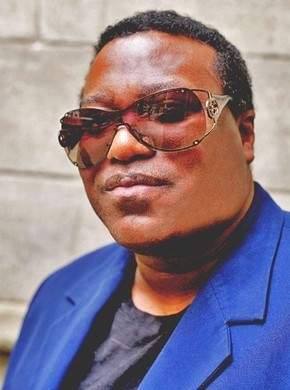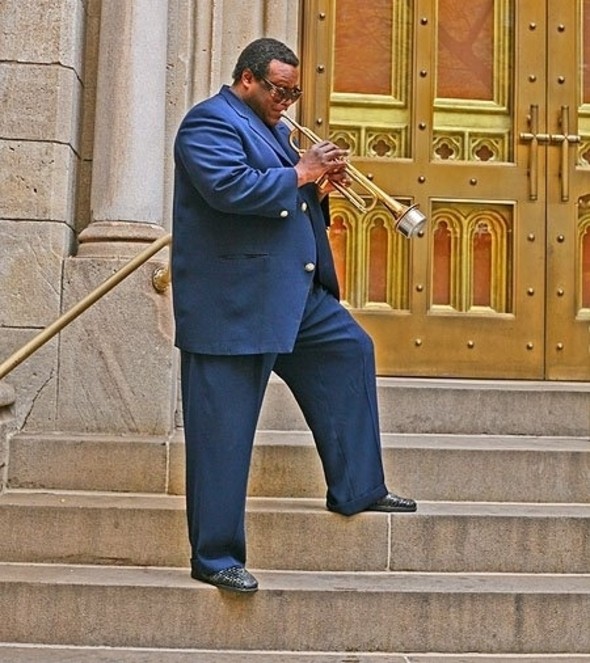Wallace Roney is having a career that many jazz musicians would envy. He is the protégé of Miles Davis, played with Art Blakey and the Jazz Messengers, but has worked hard to create his own sound. He recently shared his thoughts with me on where jazz has been and where he thinks it could go.
What was it like to have Miles Davis as a mentor?
Miles Davis, Tony Williams, and Art Blakey were my mentors. They were the people who were in my corner. Having them in my corner enabled me to do whatever I needed to do. There was no one greater than Miles Davis, except Dizzy Gillespie. Freddie Hubbard is one of the greatest trumpeters on the planet, but Miles new he had something in his back pocket that would make Freddie go, “What?” And I got to learn all of that.
I know that the idea of innovation in jazz performance is really important to you. Can you talk more about that?
What I mean by innovation learning greatest innovations that have happened in this music and then using that and adding to it. In my opinion innovation is about imagining the possibilities of what can happen or what can be played. No matter how great you can play an instrument there is always something else that can be done or that can happen with the music. A musician should always be ready to try something new. You should never take away from what is there, but add to it.
I always believe you play the way you play because you choose to play that way, not because that’s the only way you know how to play. You try to take everything that has happened in the past further. You try to see if you can take it to the next level.
Is this a idea you try to press upon the younger musicians with whom you work?
Absolutely. I tell them that you must understand what’s happened before you. But then you have to push yourself because then you can take it further. That’s what I try to do.
I read in an interview that you like to “play on the edge.” Where is the edge?
The edge for me is the unknown of what I can do. It is not an edge that someone can point out. It is the spiritual edge, to go places that you can only imagine or that you attempting and trying to reach. It is like trying to play a phrase that you hear in your head but you have never practiced before. But because you practice the instrument and you are one with it, you know your instrument well enough to attempt to conquer what you hear in your mind. You don’t even know if you’re going to make it. Sometimes you make it and sometimes you don’t. You ask yourself, “What is that sound I am looking for?” You ask yourself, “How high can I reach?”
I encourage the younger guys to reach for that next thing. I want you to learn all of the history, but then I want you to reach for that next thing.
More Photos @ www.scottstewartphotos.com
I think you occupy an interesting space as a connector between the era of iconic jazz musicians and the hip hop era. There are some who see those two eras as opposites.
[youtube w-NopnDB0bw nolink]
That’s interesting that you would ask that because I think it is the same language. It is like a continuum. It is like from Frederick Douglass to Malcolm X it is all in the same lineage. So it is not that hard to relate to what’s going on now.
Jazz is jazz and Black music is Black music. People are talking about they need to rename jazz “Black American music.” I think that is the stupidest thing in the world because it already is Black American music. Jazz is Black American music. Funk is Black American music and so is funk, R&B, and hip hop. It is all Black American music. I am pretty fine with the term “jazz.”
Some people think that jazz is too heady or too far from them to really understand. What would you say to that?
I understand what they are saying and I have two things to say about it. You are exactly right. I think some of the young kids feel like jazz is too far from them, but I think part of what is wrong with the world today is: what is wrong with upgrading yourself to try to understand music that is higher. We always want to music to be in a simple form. One hundred years from now don’t I expect music to sound like something I have never heard before? Or do I want it to always be something I do not have to think about in order to understand. Isn’t it time for us to start appreciating music that challenges us too? If we just push ourselves we might evolve into something we never expected to be.
The difference with jazz is that we do not have choreography. We don’t play and then break into a two-step. It is just our instruments and us. Let Michael Jackson sing a whole set with no backup dancers. It would be just him and his talent and that is the difference. The only thing a jazz musician has to hold your attention is their talent and their personality. And those kinds of music are great music, but when talking about jazz and other kinds of music, you have to deal with it that way.
To me, jazz is still the music of now and it is the music of the future.
By: Scott Stewart & Fredara Mareva @ scottstewartphotography@gmail.com


